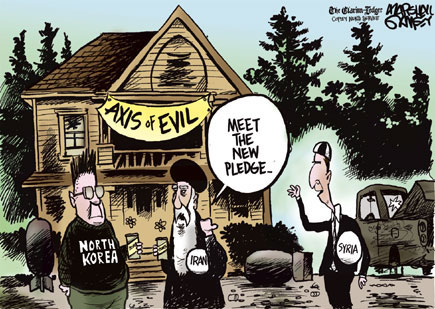Banking in Korea used to be a huge headache for newly arrived expats. More likely than not it involved conscripting a Korean coworker during lunch or perhaps after hours imposing upon their time and good will. Thankfully, things are changing. Today, some of Korea’s top banking institutions focus on servicing the ever growing expat community. I caught up with Shinhan’s Paul Sharkie for a Q&A about how Korea’s banks meet the needs of expats.
What’s your title and role at Shinhan Bank?
Before detailing my specific role, It would me negligent for me not to mention the context in which this unique opportunity arose.
As you so rightly mentioned, banking in Korea was not an easy task for any non-Korean speaking foreigner and did require the assistance of a Korean friend or – as in most cases – your boss. From my personal experience, when I was a teacher (of which I am sure applies to many of us Expats) my boss rushed me over to the bank before my next class to open an account. Little care was taken to tell me any of the details pertaining to my new banking relationship in Korea including what kind of account I was opening or how I could send money home in the future, let alone any more technical details had I wanted to know them.
From teachers to business professionals, it was clear for a long time that the more international Korea was becoming, certain industries needed to be able to cope with these changes and banking was – and certainly is – no exception. Shinhan Bank recognized the need to cater to this growing market and established their Seoul Global Center branch (a branch dedicated to Foreigners only) and later the Foreign Customer Department (where I work) with the sole purpose to service the needs of international residents and foreign invested companies’ all over Korea.
My official title is ‘Foreign Client Relationship Manager’; From the onset I was responsible for our online marketing to foreign residents through our social media sites which are playing an increasing role in our interaction with customers (largely our Facebook site “Shinhan Expat Banking” but we also utilize Twitter and Linkedin), I also support our bank branch staff in their marketing to foreign customers (assisting with our English product marketing materials / campaigns) and provide training and support for our bank branches and staff as well. I also write a monthly banking advice column for Groove Magazine. Needless to say it was a lot to take in at first, but as the role has progressed, I have been up and down the country giving presentations to potential and existing clients and I now regularly attend networking events in order to raise awareness of who we are and gain new custom from corporate clients.
What type of debit or credit cards are available for expats if any?
Debit cards and Credit Cards have always been a topical area for foreigners for the longest time – especially with regards to the latter, getting one was not as easy as it is in other countries. Entitlement to a debit card requires one to have 1) a valid passport and 2) an identification card; for us foreigners, that is your Alien Registration Card (ARC). These days there are so many options rendering the list of benefits and discounts one can attain almost inexhaustible! The key here is to shop around and find the card that’s right for you. Shinhan, (amongst other banks) has a great range of cards that cater to different lifestyles. There are cards for the shopper, the coffee drinker, the traveler and so on. The key here is to do some research, there is a common tendency to expect less from many services in Korea including banking; the truth is you can get some very favorable deals here.
With regards to credit cards, eligibility is never a straightforward issue and depends entirely on individual circumstances. When applying, you job, salary, position within a company as well as other aspects to your finances will be considered. If you are not eligible for a regular credit card, you do always have the option to apply for a ‘secured credit card’ whereby you put down a deposit of money (which accrues interest) and your credit limit would be based on this.
One crucial factor to know about credit cards in Korea is that they operate entirely different from that of cards in the ‘west’. Almost your entire balance is paid each month so don’t look for a card as an extension on your finances; whilst it is possible to split some payments, you’ll be paying the balance off a lot quicker than you would in Europe or Northern America.
If these cards are available what about using them overseas?
International debits cards and regular credit cards are of course usable overseas. As for secured credit cards, check with your bank but these are often for domestic use only.
How can expats easily handle transferring money between Korea and their home country?
These days there are more options besides going to your branch. Shinhan is one of the only banks to provide online banking – in English – for both Mac and PC. This means that you can send money domestically or internationally anytime and anywhere. In addition, you can also ask your bank if they provide an ATM overseas remittance service which allows you to wire money to your home country from any of your bank’s ATMs; a very handy service indeed. To register for any of these services, just pop into your branch with your passport, ARC and your home banking details (including the international routing number).
How easy is online banking for expats to navigate?
The actual services are very easy to navigate. Online banking in Korea is extremely secure so I would advise to drop all expectations that the services here might or should resemble those in your home country; adapting makes life here so much easier. For pc users, it crucial to note that you can ONLY access internet banking using internet explorer; no other browser will work and any attempt to use chrome etc will only result in you being directed to a page in Korean.
For Mac users, both Shinhan and KEB have great software you can download to be used on your Mac. You would access your internet banking through this software and NOT an internet browser (since Macs do not use internet explorer).
Finally, I strongly recommend that people save their digital certificates (essentially an online signature) to a USB; digital certificates are device specific meaning that which ever device you save it to means that device is the only one in which you can access your online banking service. If you save it to a USB, you can access your services on any pc or mac.
What additional financial instruments are available for expats through their banking institution? For example, loans, stocks, bonds, etc…
Foreign residents here can invest in a variety of low or high risk products, there are only some instances where you will be limited –as a foreigner – but generally there are a lot of options here which everyone should look into whether its just to get a better return on your savings or if you think you might be living here for a while, pension options would be something you might want to look into as well as products with an even better return although these tend to be a bit more risky. As always, speak to your branch about which options would be beneficial for you.
As for loans, these are a complicated matter and each different bank has varying policies; although there are a variety of loans on offer for different purposes, I shall mention two of the most topical products.
1) Personal credit loans are not impossible but certainly not easy to get. As with credit cards, individual circumstances are taken into account but should you not be eligible, you may seek a Korean guarantor however too must also have an excellent credit rating.
2) Many foreigners also ask about getting a chonsae loan in order to lower or eradicate their monthly rental costs. This is a system Koreans have been using whereby a large deposit is given to the landlord in return for little or no rental payments. Korean people often turn to banks for this loan however, Korean or not, a certificate of guarantee must be obtained from the relevant local authority and they currently do not issue this to foreigners rendering chonsae loans almost impossible for foreigners. If you want more information on this, speak to your bank.
Expats might not know of the resources and opportunities available to them. What is the most important financial service expats might not know about?
Quite generally, there are so many products and services out there but the crucial point is that many people do not know the extent to which these services and information on them are available in English. These days I visit many branches and I continue to be impressed by the high level of English, Chinese and Japanese spoken by tellers as well as the excellent multi-lingual call centers springing up everywhere. A lot of time and money is being invested in great infrastructure however a lot of people do not know about it. Get out there and explore what is on offer to you.


